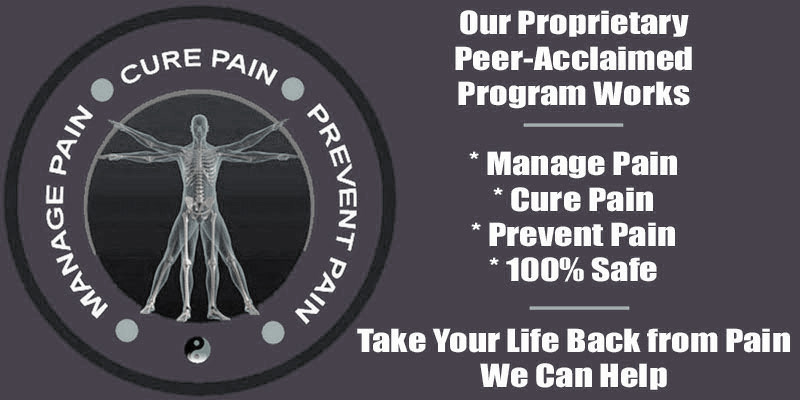
Consulting with a spinal stenosis surgeon can provide hope or may cause fear. Remember that surgeons usually want to perform surgery, which may not be the right path for every patient or case of stenosis. Many patients write to us stating that a doctor advised them to undergo surgical intervention. They seem shocked at this prescription, while we see it every day as a normal part of medical business. Surgeons operate on the spine. This is their job. This is how they make money. Do you really think it is rare for them to recommend surgical services? Our statistics show that surgeons generally advise invasive care, since this is how they prosper economically and this is what most patients have come to accept as part of the surgical consultation process.
This patient guide provides a warning for patients who are facing a surgical consult or have recently had one with a physician. We seek to provide a balanced and objective look at spinal stenosis surgery and why surgical recommendations are so incredibly commonplace, despite little proof of actual need in some recipients.
Objective Spinal Stenosis Surgeons
A good surgeon should always be objective when evaluating a patient. They should examine the patient anew, as well as analyze diagnostic images and tests from a factual perspective. A complete physical exam, symptomatic correlation and patient interview should always be part of any consultation.
A good surgeon will be able to advise the patient that they may be suffering from back or neck pain, but that the pain is unlikely to be sourced by known structural sources in the case of evidential absence. Additionally, in such cases, a good surgeon should advise that stenosis surgery is unlikely to resolve the pain, even if structural issues that may be present, but are not proven to be involved in the symptomatic expression, are corrected.
A quality surgeon will always provide a balanced view of surgery, even if it is indeed objectively recommended. They will detail the risk factors and the possibility of complications that may occur. Surgeons should also work with preoperative candidates to help them prepare for the operation in order to recuperate faster and more completely than patients who are rushed onto the operating table without imminent need.
Finally, an objective surgeon will take time to answer any questions that the patient has, regardless of the time spent doing so. They will also invite the patient to seek a second opinion and will not be insulted if the patient decides to seek out additional opinions as to whether or not surgery is truly needed, as well as whether or not the surgery stands a fair hope of being successful.
Money-Motivated Surgeons
I try never to generalize, but when it comes to my personal experience with surgeons, as well as the tens of thousands of actual stories that you have sent us over the past 15+ years, I can not hopeful that many of you will enjoy a fully satisfying and safe experience as detailed above. Instead, you might come across a different kind of surgeon who has a completely different agenda, as profiled below:
Poor surgeons will not take time to evaluate the patient adequately. They will not perform a physical exam and will only glance at existing imaging studies in order to find evidence of some injury or aging process that will legally justify surgery. Who demonstrates spinal aging? Everyone. Therefore, virtually anyone can be told that they require corrective surgery without legal risk.
A poor surgeon will acknowledge pain, but blame it on any scapegoat condition, regardless of a lack of proof or even a complete absence of scientific logic. After all, the patient will never know the difference between an actual causation and a scapegoat.
A greedy surgeon will downplay any risks involved in the surgical undertaking or simply will not address these issues at all. They will also seek to schedule the procedure immediately in order to prevent the “customer” from reconsidering or seeking a more enlightened second opinion. These surgeons will not take any time to discuss options with the patient and will simply have them prepared for surgery as soon as their insurance agrees to provide coverage.
Some surgeons view clients as prequalified for undergoing even the most invasive procedure, simply because they were referred by another doctor. They take the opportunity to secure the new customer using the power of the nocebo effect, utilizing thinly veiled threats and often illogical fears instilled in the patient’s mind. Patients are commonly told they will become disabled, paralyzed or similarly affected, without any evidence of such process taking place.
Money-motivated surgeons will cite normal versions of spinal aging and structural deterioration to justify surgical butchery. In virtually all cases of disc-related stenosis, and in at least half of the cases of true permanent bone-related stenosis, surgery is not needed at all, but is performed anyway simply because money can be made doing so.
Cautions on Seeing a Spinal Stenosis Surgeon
In order to afford those beautiful houses, cars and jewelry typically owned, surgeons operate on people; plain and simple. This fact aside, some patients are shocked that they received a recommendation for surgery after meeting with one of these financially-motivated doctors. Since the doctor is obviously a great actor and can convince the patient that the need for an operation is dire, the patient is frightened into acquiescing, even when their heart tells them that a second or third opinion might be prudent. These are not coincidentally the very same patients who typically write to us postoperatively to report poor surgical outcomes and continuing pain. Is there any surprise that this fate has befallen them? Unfortunately, no matter how many times we see this travesty of medicine, it still sickens us.
Meanwhile, some patients write to us saying that they were referred to a spinal stenosis surgeon by the primary care provider, or other specialist, and were told that they did not require surgery. Instead of being pleased, relieved and impressed by the honesty of the surgeon, they rebel and complain that they want surgery. They often seek out surgeon after surgeon until one agrees to undertake the profitable endeavor, regardless of need. Once again, these patients often write to us again postoperatively to say that they should have listened to the initial doctor. They now have suffered failed stenosis surgery and have often been truly damaged by the surgical barbarism committed against them.
We would like to offer a blanket apology to all the quality surgeons reading this scathing article. We do not mean to generalize that all stenosis surgeons are bad, since statistics show spinal stenosis to be one of the few surgically responsive back and neck pain conditions. Some patients do actually need surgery, receive it and do fine. However, in all fairness, these are the people who we never hear from. Instead, we are inundated with letters, emails and stories written by patients who have terrible experiences with the surgical process, so the tone of this essay is well justified.
Let this clear message serve as a warning that patients must be responsible for taking an active role in their diagnosis and treatment. Failure to do so is placing oneself at great risk for financial exploitation that may indeed lead to exacerbated pain, permanent disability or even death.
Spinal Stenosis > Spinal Stenosis Surgery > Spinal Stenosis Surgeon






